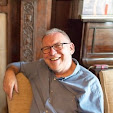 I know there's nothing at all romantic about the reality of piracy but my thoughts have drifted, these last few days, to Sandokan - the fictional late 19th-century pirate created by Italian author Emilio Salgari. In the mid-70s, the stories were made into a rather forgettable but charming European TV series, with dubbed dialogue and a catchy theme tune. You may wonder why, after all these years, Sandokan has bubbled up into my consciousness. It will become clear in a bit.
I know there's nothing at all romantic about the reality of piracy but my thoughts have drifted, these last few days, to Sandokan - the fictional late 19th-century pirate created by Italian author Emilio Salgari. In the mid-70s, the stories were made into a rather forgettable but charming European TV series, with dubbed dialogue and a catchy theme tune. You may wonder why, after all these years, Sandokan has bubbled up into my consciousness. It will become clear in a bit.As the coronavirus continues to affect lives globally, I'm writing, self-isolating, at home. The effects of self-isolation on mental health and wellbeing have become a topic for daily discussion on the news and we've also seen thousands of examples of creativity in action. Musicians and actors, forced to cancel live performances, are offering online performances and tuition instead. Gin distilleries are re-purposing their equipment to produce hand-sanitiser, using the same alcohol they normally use to make gin and vodka. Recently-retired nurses and other healthcare workers are being urged to return to work for the NHS.
Meanwhile, this week I'll be very quietly celebrating the fact it's two years since the publication of my book 'Creativity, wellbeing and mental health practice'. The book may not have been a best-seller but I have the consolation of knowing it has travelled widely and has been well-received by academics and researchers across the globe. For example, I discovered, the other day, that my work had been cited by a Portuguese academic twice in her work on nursing home care appointments for the elderly and on artistic mediation in mental health nursing. There's no law against referencing incorrectly but the researcher had cited my work as having appeared in a journal called 'Art & Science' (for which I'd never knowingly written anything.) Intrigued, I googled the errant reference and it took me to a complete eBook version of my book, freely available on a certain website. To add insult to injury, my book was not only being given away but was being passed off as the work of a Vietnamese author. I'd never heard of this author - but it's not surprising as my book is his only publication, if you see what I mean.
I contacted the commissioning editor at my publisher and I was reassured that she's passing the details on to their pirating team to investigate. So now I have visions of a gunship, hurriedly dispatched, setting a course for the South China Sea in search of a Sandokan-like character with the aim of retrieving some 'pieces of eight' for my publisher. Sadly, whether they catch the pirate or not, I won't profit from it personally but at least I might be recognised again as the rightful author. Ah, Jim lad! (Oh no - wrong pirate.)




Plagiarism on the high seas! When you think about it, it's quite a complement. How many of us have ever been plagiarized? No one I know...until now. Enjoy it and keep safe.
ReplyDeleteWell, that's one way of looking at it, Rickety Rackety. But it's one thing to be plagiarised and another to be pirated, shiver me timbers!
Delete